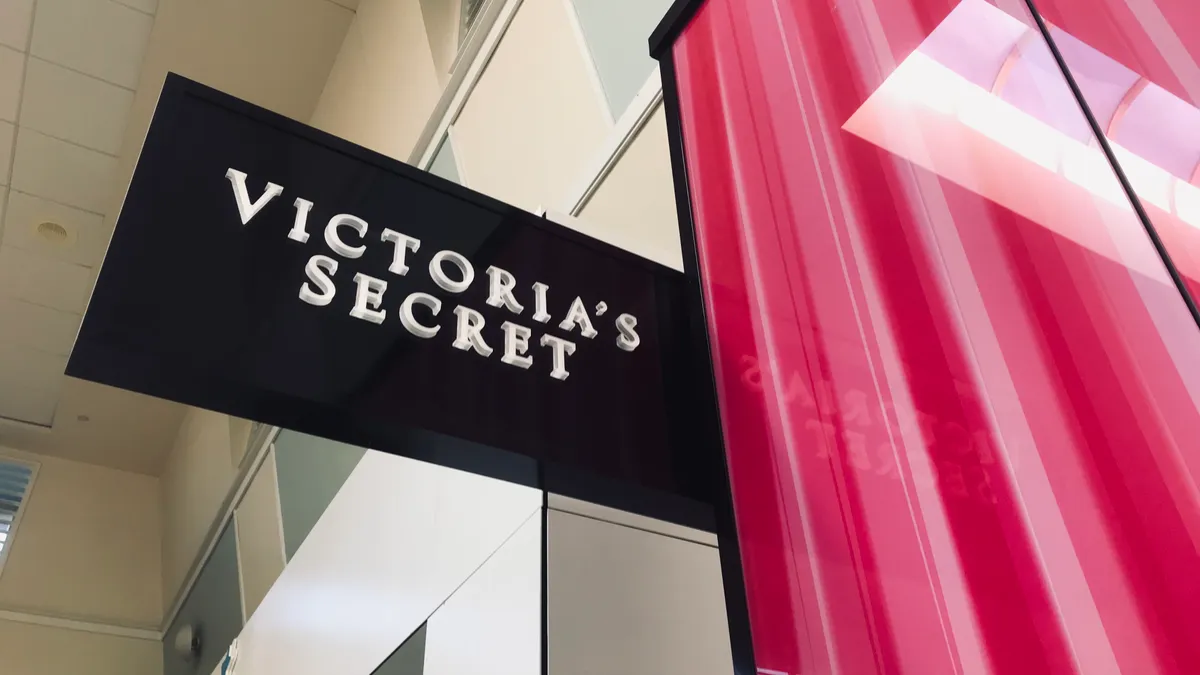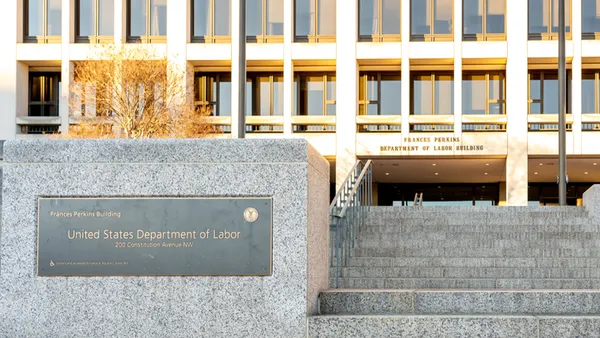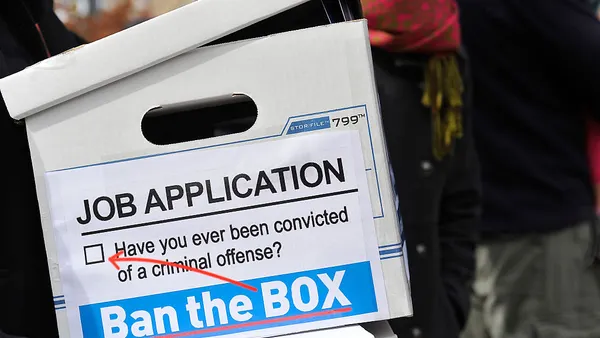Dive Brief:
- A former Victoria’s Secret employee in California seeking pay for time spent undergoing pre-shift, COVID-19-related temperature checks can continue with her lawsuit but will have to wait to proceed, a federal district court recently ruled (Tirado v. Victoria’s Secret Stores, LLC, No. 21-00636 (E.D. Calif. Mar. 10, 2023)). The court declined to dismiss the claim but rather, to avoid duplicative recovery, put the case on hold until other suits challenging off-the-clock activities at the company’s California stores are resolved.
- Per the complaint, the employee worked part-time for Victoria’s Secret. She alleged that beginning in March 2020, in response to the pandemic, employees were required to wait approximately five minutes before clocking in at the start of their shifts to undergo temperature screenings. The employee claimed the screenings were compensable, off-the-clock work under California labor law. In 2021, she filed a class-action lawsuit to recover pay for the time.
- Under the “first-to-file” rule, the court stayed the case pending the outcome of class-action suits filed in May 2019 (seeking pay for having to come in early due to high customer volume or staff shortages) and in September 2019 (alleging unpaid off-the-clock bag checks and security screenings) by other Victoria’s Secret employees. The lawsuits involve similar parties and similar issues: In each case, current or former nonexempt employees in California alleged they were not fully compensated for time spent working outside of their shifts, the court explained. And there is some overlap among proposed class members who may recover from the 2019 suits and those who may recover from this case, it said. Staying the case furthers efficiency and helps avoid conflicting judgments and double recovery, the court held.
Dive Insight:
Prior to COVID-19, issues over pay for time spent in pre- or post-shift activities often involved off-the-clock security bag checks. For example, in a seminal 2014 U.S. Supreme Court ruling, the justices unanimously held against warehouse workers who claimed the Fair Labor Standards Act required them to be paid for the time they spent undergoing bag checks during meal breaks and after they clocked out of their shifts.
The justices found the time was not compensable under the FLSA because the bag checks were not a “principle activity” and were not “integral and indispensable” to the job the workers were hired to perform.
More recently, in 2022, a federal district court in California approved a $30 million settlement between Apple and a class of hourly workers claiming they were owed pay for off-the-clock security bag checks.
The Apple workers sued under California labor law and the FLSA, with differing results. The FLSA claims were dismissed in light of the U.S. Supreme Court’s 2014 ruling. However, the California Supreme Court found that under state law, Apple had to pay the workers for the time, and the 9th U.S. Circuit Court of Appeals upheld the decision.
Pre-shift temperature and wellness screenings instituted in response to COVID have prompted more lawsuits. In an FAQ issued during the height of the pandemic, the U.S. Department of Labor stated that whether employees must be paid for the time under the FLSA depends on if the screening is “necessary for the work” the employee does.
In the FAQ document’s example, the time a hospital patient care nurse spends undergoing required temperature checks before entering the worksite “is likely compensable because such a task is necessary for her to safely and effectively perform her job during the pandemic.” In other words, “the temperature check is integral and indispensable to the nurse’s job.”
However, employers in non-healthcare industries appear to be prevailing on FLSA claims involving pre-shift COVID screenings, according to a December 2022 post by Seyfarth Shaw lawyers Ethan Goemann and Noah Finkel.
Last year, in a case out of Michigan, a federal district court rejected the argument of workers in a cereal manufacturing plant that completing a pre-shift COVID-related wellness questionnaire and temperature check was indispensable to their job because they help produce food in a sanitary plant, the attorneys explained. A federal district court in California rejected a route driver’s claim that under the FLSA, a similar pre-shift screening was indispensable to his job.













